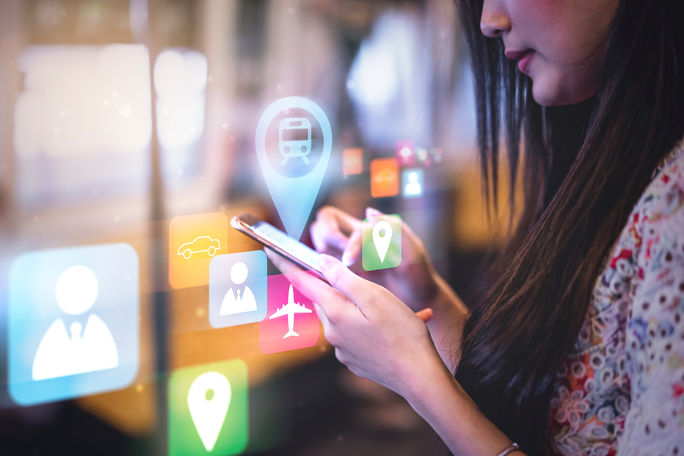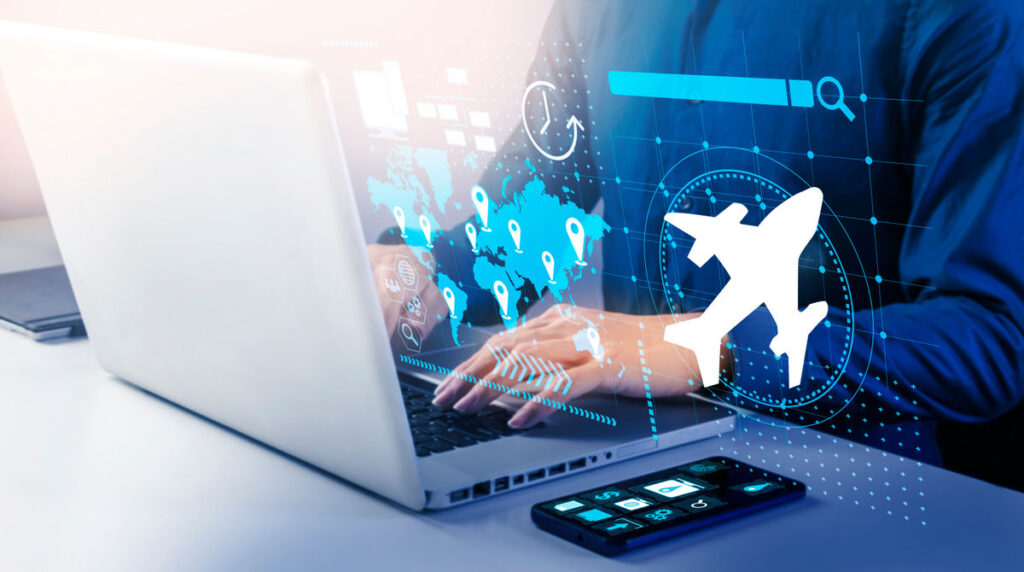
Like it or not, travelers are prioritizing what a new report calls “digital-first” lives.
What does that mean exactly? Think: managing every element of life using a digital device, whether paying bills, scheduling health appointments or some other facet of daily existence. People today live their lives through their phones, and the apps on their phones.
Yet, when it comes time to hop on a plane, travelers are still asked to “queue, print, and repeat,” says a new report from aviation technology company SITA.
Titled “Travelers’ Voice, SITA Passenger IT Insights 2025,” the report involved surveying more than 7,500 real passengers at airports in 25 countries around the world.
One of the takeaways from this effort is that there is a “clear disconnect” between travelers who are “ready for easy, smart journeys” that are technology forward and the airline industry, which is lagging behind in integrating use of the latest tech.
These same travelers would like to see the airline industry “accelerate its transformation,” when it comes to the integration of new technology. Tech savvy globetrotters want their air travel experience to match the digital ease of the rest of their lives.
“When you’re daily life is digital, you expect the same from travel,” David Lavorel, CEO of SITA, says in the report.
“A swipe on your phone should move you forward. Updates should arrive when you need them. Choices should be intuitive. When travelers are on the move, they bring those expectations with them on their journeys.
Here’s a closer look at what the report found and what it means for the airline travel experience.

Woman uses smart phone to check travel plans (Photo Credit: Have a nice day, Adobe Stock)
Key Themes Surface Among Traveler Sentiment
Simple. Trusted. Sustainable. Those are some of the top features consumers want far more of moving forward when it comes to their end-to-end air travel experience.
Let’s break it down. First the demand for a simpler air travel experience.
“Simplicity means shorter waits, seamless intermodal trips, and real-time updates they can manage from their phones,” explains the SITA report.
Nearly two in three say they want faster airport processing, while 42 percent want a single ticket covering air, rail, and road.
Mobile phones are already the hub for scores of travelers, with usage up 20 points since 2020.
“Passengers aren’t resisting change. They’ve already changed,” David Lavorel, CEO of SITA, said. “They’ve gone digital. Now it’s our turn. The future of travel isn’t just about adding tech. It’s about removing friction.”
For many, the use of biometrics and digital IDs at airport checkpoints and in other security screening locations used to feel futuristic.
Now? They’re expected, says the SITA report. In fact, most passengers today prefer biometric gates over staffed counters.
Moreover, nearly 80 percent of travelers say they are ready to store their passport on their phone. In addition, two-thirds said they would be willing to pay for that convenience.
If you’re still not on the digital identity bandwagon, you may be among a dwindling group. Globally, digital identity adoption is set to surge from 155 million users today to 1.27 billion by 2029, per the report.
“We’re asking passengers to adapt to travel,” Lavorel added. “But they’re asking travel to adapt to them. The tools are here, biometrics, digital IDs, real-time data, and smarter baggage. The only thing missing is urgency.”
Increased Focus on Trust in Travel Companies and Brands
Trust is now a measurable factor in travel choices, says the report. And in the travel consumer’s mind it covers everything from baggage visibility, to digital identities, and confidence in how data is handled.
For example, at a time when baggage mishandling rates among airlines are at historic lows, a full 78 percent of passengers still say they would pay for end-to-end baggage services. Why? Because trust matters, per the report.
Those same travelers want that trust to extend beyond the airline experience to include other travel modes, with 70 percent planning at least one intermodal trip this year.
Sustainability Is a Mainstream Priority for Globetrotters
Despite the lagging efforts of elected officials and within the corporate world, sustainability is expected by travelers as the planet grapples with human-driven climate change and environmental destruction. The SITA report is merely the latest to unearth this sentiment among the general population.
Sustainability “is no longer a side note for passengers, it’s part of the decision to fly,” says the report.
“As they do with clothes or food, they tend to prefer sustainable actions,” the report adds.
To that end:
Nearly nine in ten travelers say they’re willing to pay to offset their carbon footprint, with only a mere 13 percent now saying they are unwilling to contribute.Passengers are prepared to pay an average of 11.3 percent more on top of their ticket price to reduce emissions. That figure is up from 10.8 percent in 2024.Younger travelers, frequent flyers, business passengers and those in premium cabins are the most committed, with business travelers willing to pay the most at 14.6 percent on average.
In addition, travelers say they are willing to fly slower or pack lighter to cut their footprint.
“These aren’t small gestures. They show passengers are ready to trade convenience for impact, especially among digital-first generations, who expect greener choices as standard,” says the report.
Perhaps most importantly, travelers also said that they want the aviation industry to match their personal commitment with real tangible actions. Meaning, it’s time for the airlines to accelerate their efforts on sustainability to keep up with consumers who are fully ready to do what they can to protect the planet.
For the latest travel news, updates and deals, subscribe to the daily TravelPulse newsletter.

